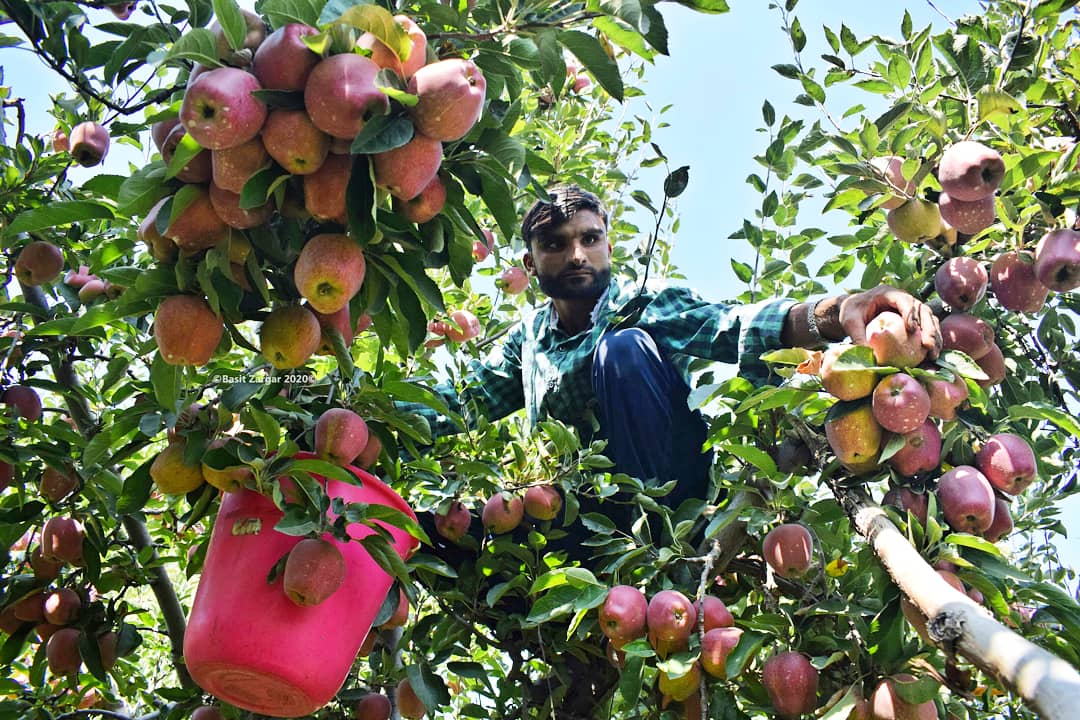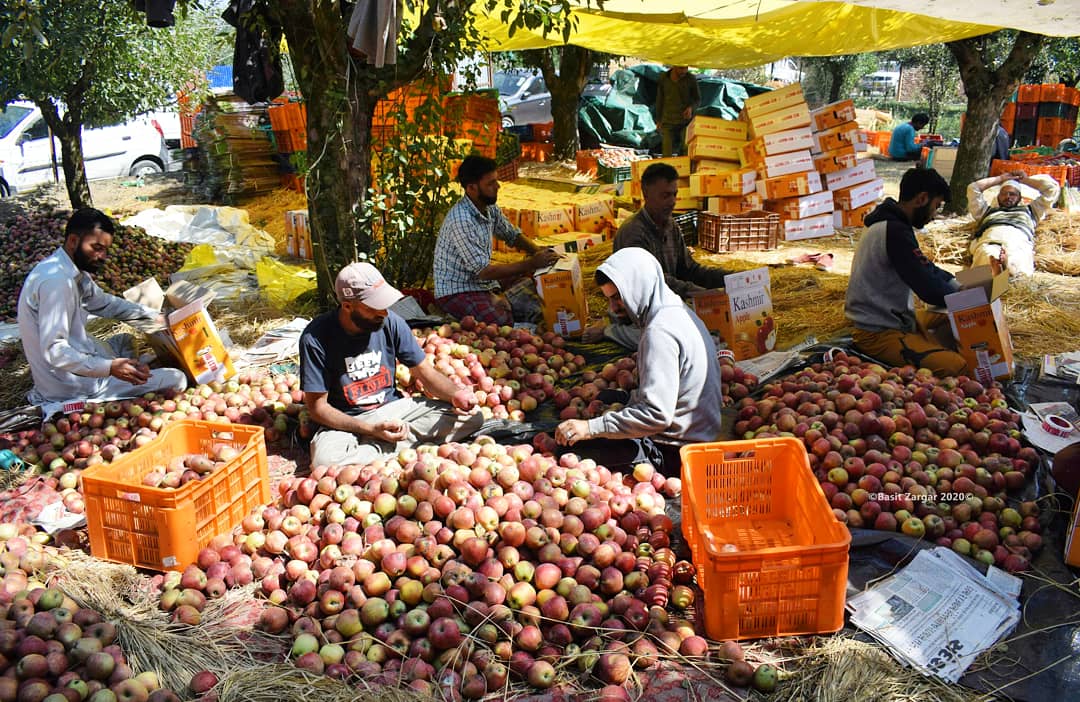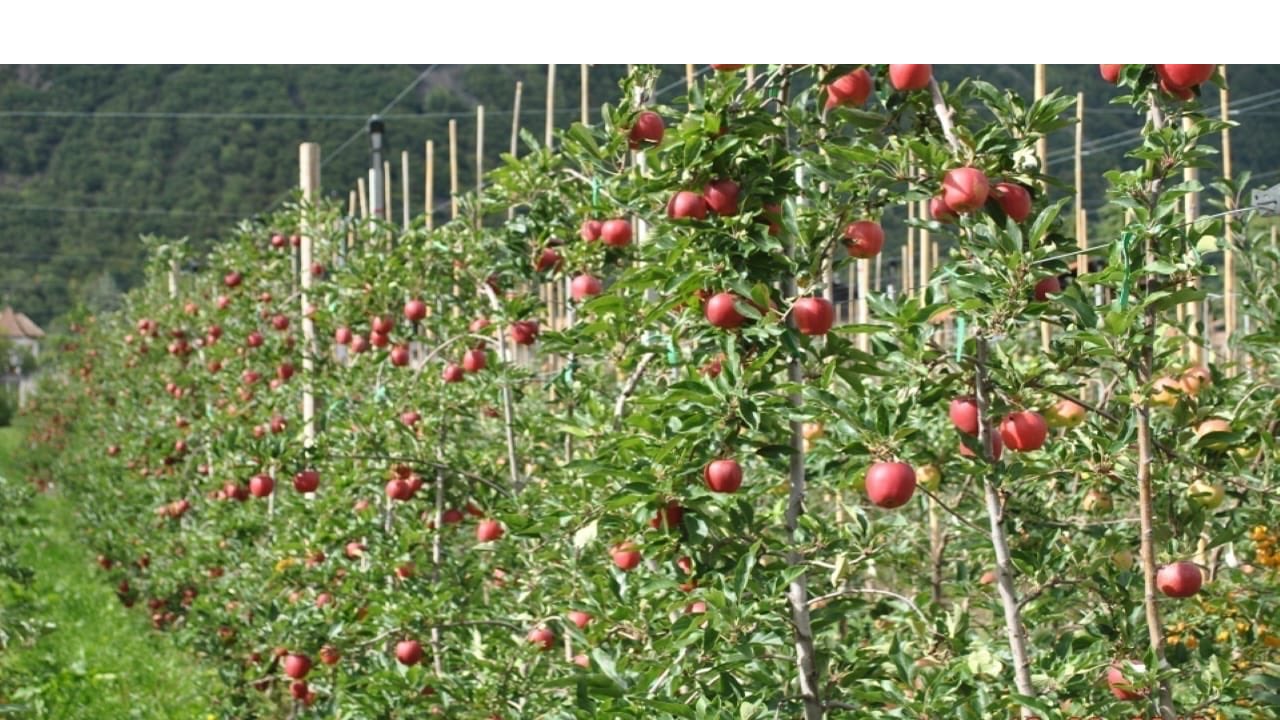_(1).webp)
Ehsan Fazili/Srinagar
A project executed by Kashmir’s Agricultural University has led to a major boost in apple production in the Valley. This major crop supports about 70 percent of the rural population's livelihood.
“Before 2010, the apple crop was giving worries to the growers as the yield was steadily declining. The production was down by 30 to 40 percent (in 2010) because of inadequate crop pollination”, Prof Manzoor Ahmad Parray, Head of the Research and Training Centre for Pollinators, Pollinizers and Pollination Management at the Sher-e-Kashmir University of Agricultural Sciences and Technology, Kashmir (SKUAST-K), told Awaz-The Voice.
Sitting in the sprawling campus of the University at Shalimar overlooking the Dal Lake, Parray said that the University was being flooded with concerns of apple growers about the falling production due to unknown reasons. They wanted experts’ guidance and corrective measures.
 A man harvesting apple in an orchard in Tral (Basit Zargar)
A man harvesting apple in an orchard in Tral (Basit Zargar)
The SKUAST devised plans to find the root causes of the falling production. The situation was worrisome as the horticulturists were shifting to other crops which were not so lucrative.
Due to the interventions by SKUAST, the apple yield reached an all-time high of 20.40 lakh metric tonnes last season (2024-25). “This is an increase of 29 percent, Prof Paray said. “Our job was to make entrepreneurs, while the number of beekeepers has also increased under PPP (Public Private Partnership).”
This has also led to an increase in the honey production from the valley. The number of registered beekeepers has increased to 4700 with at least 2.50 lakh bee colonies, producing honey valued at Rs 500 crore.
Kashmir valley is known as the 'apple basket' of India. The crop is cultivated on about 1.72 lakh hectares and produces about 78 percent of the country’s apple production, Manzoor Parray said.
 Workers packing apples in wooden boxes in an orchard in Tral (Basit Zargar)
Workers packing apples in wooden boxes in an orchard in Tral (Basit Zargar)
The SKUAST launched the project more than two decades ago, and it was revamped around 2015-16. The SKUAST-K at its campus constituted a team led by Dr Manzoor Ahmad Paray (Entomologist) as Principal Investigator, with a team of 15 scientists and scholars to examine the issue.
The team submitted a detailed report to the Indian Council of Agricultural Research (ICAR) in 2016. It recommended pollination management in apple orchards and research on all fruit crops grown in Kashmir valley, Paray said.
ICAR approved the project and allocated funds for developing research and development capacity of the SKUAST to facilitate and manage pollination of fruit crops in Kashmir valley.Paray said. “Its goal was to reverse the declining production of fruits, especially the apple, and the benefits included improved production and quality of apple, increase in farmers’ income, and improved ecosystem in which pollinators and pollinizers can thrive naturally.”
The measures of managed pollination over the years resulted in an all-time high apple and honey production in the Valley.
“We chose the honey bees, which are the best pollinators with a reach up to three km radius, to address the pollination deficit. Bee colonies were developed in each district of the valley,” Paray said.
 High density apple variety in Kashmir (Courtesy: NITI Ayog)
High density apple variety in Kashmir (Courtesy: NITI Ayog)
The SKUAST-K, in coordination with government departments like Agriculture, Horticulture, and HPMC (Horticulture Produce Marketing & Processing Corporation), developed nearly 200 bee colonies in orchards of each district of the valley.
ALSO READ: Mohammad Ibrahim’s inspirational journey from Motihari to global business arena
“We have also organized workshops to create awareness among the orchardists and farmers about the benefits of pollination with the help of bee colonies. Not only are there honeybees, but there are other pollinators including bumblebees (tomato pollination), small insects, soil, wood-dwelling pollinators, wooden logs, etc.”
